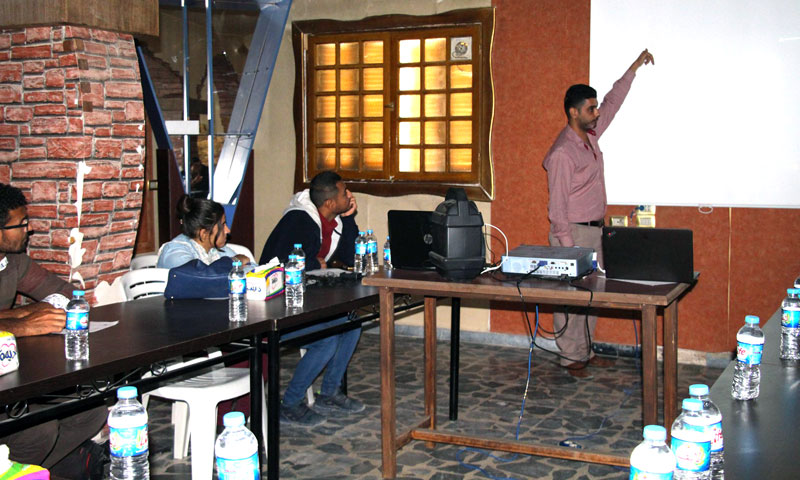



Following its courses at the city of Qamishli last year, the “Eridu Center for Civil Society and Democracy” is preparing to launch an anti-discrimination project at the city of Raqqa in the beginning of 2019.
The project aims to introduce the phenomena of discrimination, of all forms, through defining it and presenting the suitable solutions for combating it, as well as the manner to face it with possible peaceful and interactive means.
The preparations for this project started after the opening of the Center’s branch at the city of Raqqa two months ago and conducting a number of workshops under the stability in the city which followed the removal of the “Islamic State” (IS) by the “Syrian Democratic Forces” (SDF) on October 17, 2017.
The area’s authorities are accused of following policies of racial discrimination between Kurdish and Arab people, which was translated into repetitive demonstrations throughout the past months in Raqqa, expressing refusal of these policies.
The project is a necessity because the Syrian society today is suffering the repercussions of fundamentalism and discrimination under different thematic lines, especially religion and race, where extremisms appears the most, Ghandi Safar Saado, director of “Eridu” Center, told Enab Baladi.
The project’s execution is planned to start at the city of Raqqa next January, according to Safar Saado, who explained that it will consist of awareness and training workshops on the concept of discrimination, its negative impact and the mechanisms to combat it, in addition awareness leaflets that will be given to the area’s people.
Movies about discrimination will also be presented as to introduce the key universal figures who fought it, in addition to conducting public seminars, with the participation of socially influential figures as to conduct a social dialogue about the mechanisms that might be adopted to face the phenomena in the city.
The United Nations chose to open the international humanitarian law with the following article: “All human beings are born free and equal in dignity and rights,” stressing that discrimination starts with individuals’ deprivation of the equality principle and non-discrimination, basic to the prevention of ethnic hatred which leads to genocide, explaining that discrimination and extremism function to cause the destruction of society’s life.
The Director of the “Eridu” center pointed out that so far there is not a sponsor to the project and that it will be started as a volunteering effort by the Center, unlike the project it launched in the city of Qamishli in May 2013, under the title “Do Not be a Wound,” which was supported by the United States Department of State.
The “Eridu” center was found in May 2013 and was the umbrella for many activities at the al-Hasakah governorate, northern Syria. It defines itself as an independent non-profit social foundation, aiming at supporting and spreading the culture of civil society within the various Syrian social classes, including the area’s religious and ethnic components, Arab, Kurdish, Assyrian and Syriac people.
| Today, the Center’s staff consists of 37 people; while it follows none of the political currents, it depends on donor organizations to support the projects it starts. |
The Center conducts three types of activities, according to Ghandi Safar Saado; the first is social awareness and the spread of civil society action culture; the second is the empowerment of youth in the fields of civil work and development, such as computers, computational and administrative programs, and the third focuses on foundations, regimes, constitutions and the parliament.
The Center has started various activities in the city of Raqqa, the first of which was a four-day media workshop, to present the reality of the city and the area’s needed services, especially since the percentage of destruction in Raqqa is very high. Under this initiative, several young people and interested persons, working in the field of media, were trained by a specialized trainer.
The United Nations’ statistics show that more than ten thousand buildings in Raqqa are either completely or partially destroyed during the battle in 2017.
About how do people receive these initiatives, the Center’s director said that there is a state of “hunger” among the people for such matters, due to a duration of repression and long suffering lived in the shadow of the “Islamic State,” which today is manifested in a direct desire to address and cure these matters and to prevent the repetition of the bad experience which the city was stuck in once.
if you think the article contain wrong information or you have additional details Send Correction